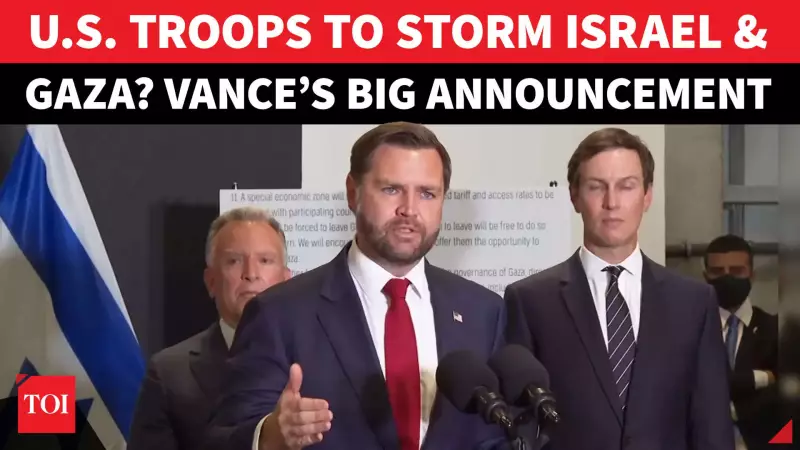
In a development that could significantly alter the dynamics of the Middle East conflict, shocking revelations have emerged from Israel's truce negotiation headquarters involving US Senator JD Vance.
The Bombshell Proposal
According to exclusive information obtained from the heart of Israel's ceasefire command center, discussions have included the controversial possibility of American military forces directly engaging with Hamas combatants in Gaza. This unprecedented move would mark a dramatic escalation of US involvement in the ongoing conflict.
Vance's Strategic Position
Senator JD Vance, whose presence at the truce headquarters has raised eyebrows, reportedly supports this aggressive approach. The Ohio Republican's stance suggests a fundamental shift in how American policymakers view direct military intervention in the Gaza strip.
What This Means for Regional Dynamics
The potential deployment of US troops to actively combat Hamas fighters represents a seismic change in American foreign policy. Traditionally, US support for Israel has consisted of military aid, intelligence sharing, and diplomatic backing—but stopping short of putting American boots on the ground for direct combat operations against Hamas.
Implications for Ceasefire Negotiations
This revelation comes at a critical juncture in ceasefire talks between Israel and Hamas. The suggestion of US military involvement could:
- Strengthen Israel's bargaining position in ongoing negotiations
- Potentially complicate diplomatic efforts with regional partners
- Change the calculation for Hamas leadership regarding continued resistance
- Alter the risk assessment for other actors in the region
Expert Analysis
Military strategists are divided on the wisdom of such a move. While some argue that American special forces could effectively "tame" Hamas fighters and accelerate conflict resolution, others warn of mission creep and the potential for increased American casualties in urban warfare environments.
The international community watches with bated breath as these developments unfold, recognizing that such a decision could redefine America's role in Middle Eastern conflicts for generations to come.





